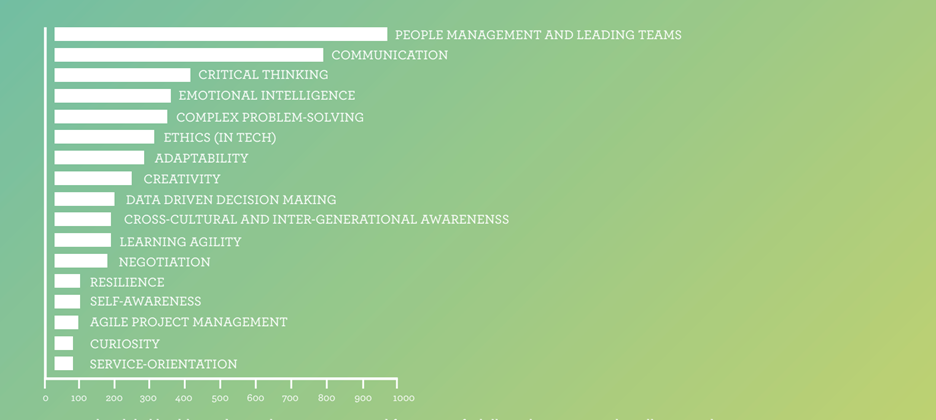In 2020, the world came to a screeching halt as a result of the pandemic. Two years down the line, we’re still feeling the ripple effects. The pandemic enduringly changed the way we live and the way we work. If we were to look for a silver lining from an event that seemed impossible to offer one, it would be a dramatic shift in our perception of what work should be. More and more people are looking for inclusive work environments, and younger generations are giving wellbeing, mental health, and work-life balance long-awaited seats at the table.
Undoubtedly, the next generation’s perceptions of current leadership and their views on the future of work can and should be the impetus for organisations to adapt and evolve, ultimately moving in time with a new normal that still hasn’t found its footing.
Each year at The Adecco Group, we survey the next generation of leaders to explore their thoughts and feelings on the future of work. #CtheFuture 3.0 is a survey of young leaders across the globe, some of whom participated in the Adecco Group’s CEO for One Month 2022 initiative. This year 1,685 respondents hailed from all corners of the globe; our top five respondents came from India, Italy, Peru, Brazil, and the UAE.
-
76% are between the ages of 18-30
-
Over 50% are women
-
30% are enrolled in full-time education
-
23% are currently employed full-time
We asked these promising young leaders what they thought about the future of work and new ways of working. The survey included questions about flexible working practices, access to the labour market, and concerns about the future of work. This is what they said.
1. Soft skills aren’t going anywhere anytime soon
In 2019, 69% of respondents said soft skills were more important than hard skills for future CEOs. Three years down the line, the paradigm shift is quite clear. Our latest survey reveals that 82% of respondents believe soft skills are far more critical for future leaders.
.png?h=586&iar=0&w=936&hash=1020D25516DD787440BD017D30DFE808)
2. Decision makers are in high demand
While communication, critical thinking, and emotional intelligence ranked high on the list of essential soft skills, young leaders unequivocally ranked people management and team leadership as the most important skill for future leaders to have.

3. Higher education is losing steam
Although higher education is still in demand, a growing trend favors experience over degrees when assessing good leadership. This year, 54% of respondents said they did not believe future CEOs would need university degrees, compared to 49% last year.
4. New talent is stepping into a robust job market
Even as a worldwide pandemic raged on, new job seekers found plenty of opportunities to access a new or first job. In 2022, nearly two-thirds of respondents indicated they were able to seek new opportunities at the end of the pandemic — a nice jump from 50% who said the same during the pandemic.
From this, we can glean that organizations are prioritizing agility and flexibility to attract top talent in the toughest of times.
5. Flexible work hours are becoming the rule, not the exception
The pandemic changed every aspect of our lives, but nowhere was change more palpable than in our expressed desire for a better work-life balance.
In our current survey, 85% of respondents ranked flexible working hours as desirable/very desirable, whereas only 30% said the same of traditional 9-5 models. Many indicated that fixed-term contracts were still desirable, but the flexibility to choose their hours within these flexible contracts was even more important.
.png?h=586&iar=0&w=936&hash=7F8481D15FFD700D4CBEDC93B86D56AF)
6. Managers lead and manage remote teams effectively
With the future of work shaping up to be a hybrid model of remote work and on-site campuses, younger generations are looking for leaders who can effectively lead and manage remote teams.
When asked if current managers and CEOs were well suited to managing remote teams, 60% of respondents said yes in 2021. This year, that number inched up to 67%, a clear indication that leaders are brilliantly developing their skill sets and artfully keeping pace in a business landscape fraught with change.
7. Mental health is their biggest concern
A global pandemic was a game changer in the world of work. In the end, it pushed wellness — in all its forms — to the forefront, for workers everywhere.
Not only are younger generations pushing the envelope in diversity, equity, and inclusion, but they’re also doing the heavy lifting to strip away stigmas around mental health.
When asked about their biggest concerns about the future of work, 20% of respondents said mental health was highly important; “access to the world of work” and “pay equality” came in 2nd and 3rd, respectively, as the most important issues.
